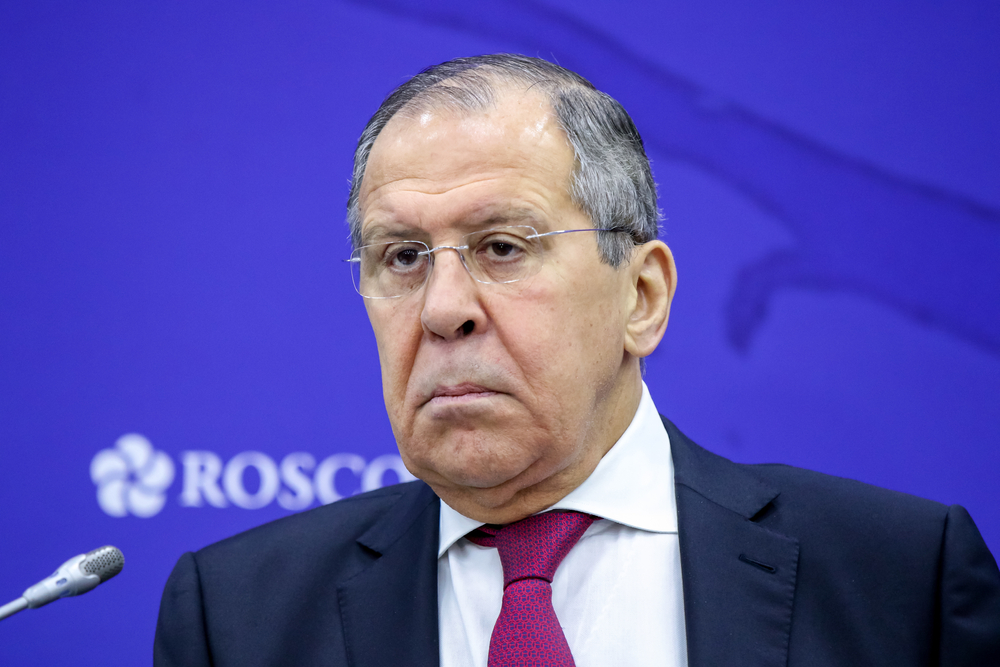Reading his remarks, it’s another clear case of the Kremlin trying to rewrite history to justify its actions.
Others are reading now
Russia’s top diplomat has rejected claims that Moscow’s assault on Ukraine violated a key international security accord signed three decades ago.
Speaking to reporters, Russian Foreign Minister Sergei Lavrov insisted that Russia’s military actions do not contravene the 1994 Budapest Memorandum.
“The [Budapest] Memorandum provides that Ukraine, like other former Soviet republics that have renounced nuclear weapons, will receive guarantees from the nuclear powers towards non-nuclear states. That’s it,” he said, according to Russian state-owned media RIA Novosti.
What is the Budapest Memorandum?
After the collapse of the Soviet Union in 1991, newly independent Ukraine inherited the world’s third-largest nuclear arsenal, raising international concerns about nuclear proliferation.
The United States, Russia, and other powers wanted Ukraine, Belarus, and Kazakhstan to give up their nuclear weapons and join the Treaty on the Non-Proliferation of Nuclear Weapons (NPT) as non-nuclear states.
Also read
On December 5, 1994, at the Organization for Security and Co-operation in Europe (OSCE) summit in Budapest, Ukraine agreed to accede to the NPT.
The memorandum promises respect for Ukraine’s sovereignty, independence, and existing borders, emphasizing the non-use of force or threats against Ukraine’s territorial integrity.
Lavrov rewriting history
Lavrov argued that the guarantees only prohibit the use of nuclear weapons against non-nuclear states that are parties to the Treaty on the Non-Proliferation of Nuclear Weapons (NPT).
According to him, the document does not extend to broader military or political obligations.
He further claimed that Ukraine itself had breached other international principles agreed alongside the memorandum, including commitments to minority rights, democracy, and free expression under the Organization for Security and Co-operation in Europe (OSCE).
Also read
Only part of what the memorandum says
The first point of the Budapest Memorandum states:
“The Russian Federation, the United Kingdom of Great Britain and Northern Ireland, and the United States of America reaffirm their commitment to Ukraine (…) to respect the independence, sovereignty, and existing borders of Ukraine.”
The fifth point of the memorandum states:
“The Russian Federation, the United Kingdom of Great Britain and Northern Ireland, and the United States of America reaffirm, in the case of Ukraine, their commitment not to use nuclear weapons against any non-nuclear State Party, except in the case of an attack on themselves, their territories or dependent territories, their armed forces, or their allies.”
Lavrov appears to be referring to the fifth point of the memorandum but seems to be ignoring the first point.
Also read
Russia has repeatedly violated the memorandum for the past 11 years.
Ongoing violations
Despite those assurances, Russia’s actions since 2014—when it annexed Crimea and backed separatist forces in eastern Ukraine—have been widely regarded as a clear breach of the memorandum.
The full-scale invasion launched in 2022 has only deepened that perception among Western governments and international law experts.
Ukraine and its allies maintain that Russia’s justification for war has no legal foundation under the agreements Moscow once endorsed.
Lavrov’s latest remarks appear intended to reframe Russia’s interpretation of its own commitments under the post-Soviet security pact.
Also read
You can read The Budapest Memorandum in full on the United Nations website (opens new tab)


